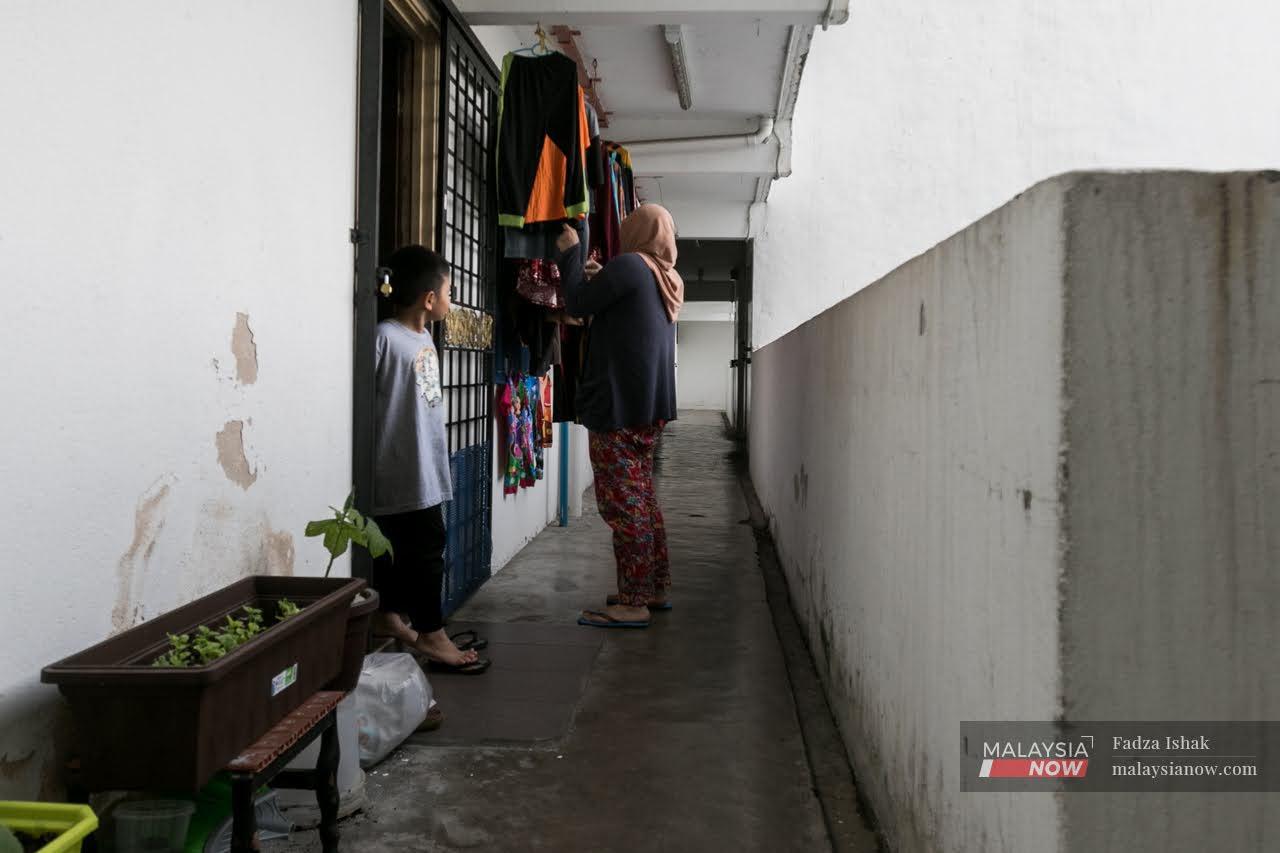Period poverty afflicts urban poor as pandemic continues
Many do not have even the basic necessities for personal hygiene, a situation that could turn worse as the Covid-19 pandemic takes its toll on the finances of the urban poor.
Just In
Every month, Wan Alifa Wan Izzat dreads the arrival of her period.
The 31-year-old housewife used to be able to buy enough pads to see her through most of her menstruation, but this has been increasingly difficult ever since the onslaught of the Covid-19 pandemic last year.
“Normally, I buy a small packet of pads, enough to last three days. After Covid-19, though, my husband can no longer afford this,” she told MalaysiaNow.
Since May last year, Wan Alifa has been relying on rags or old towels which she cuts into small pieces.
Period poverty, which refers to situations in which women or families are unable to afford sanitary napkins, is a trend especially in city areas.
Sociologist Syarifah Fatimah Al Zahrah Al Attas from the International Islamic University said the issue was already of concern before this as many lacked awareness of menstrual management.
After the movement control order (MCO), implemented last March to curb the spread of Covid-19, the situation became more acute, she said.
Period poverty, which refers to situations in which women or families are unable to afford sanitary napkins, is a trend especially in city areas.
The MCO was recently reinstated until Jan 26 in six states as the government battles to control a fierce spike in infections which has seen daily numbers firmly entrenched in the four-digit range, with cases hitting an all-time high of 3,309 on Jan 12.
The pandemic has claimed 563 lives so far with 144,518 confirmed infections as of yesterday.
Fatimah said previous observations and studies had shown no sudden increase in public demand for hygiene kits in urban areas such as low-cost housing flats or PPR.
But this began changing after the MCO last year, with many asking for female sanitary products.
“This means they do not even have the basic necessities for personal hygiene,” she told MalaysiaNow.
But she added that cases such as Wan Alifa’s are difficult to uncover as these women remain at home throughout the MCO period.
“If they are at school, we might know,” she said. “There have been some students who do not attend school because they do not have sanitary pads. But when they are at home, we cannot observe anything.
“I’m not sure what will happen in the next two weeks,” she added. “But one thing is for sure: it will get harder.”
Fatimah said many women outside cities use cloth sanitary pads which can be washed and reused.
For those who live in cities, meanwhile, disposable pads are easier and more convenient.
But the urban poor use anything they have in the house, she added.
“I’m not sure what will happen in the next two weeks. But one thing is for sure: it will get harder.”
“Some use paper or old newspapers to absorb the blood. Maybe that’s how they manage it because not many ask about it,” she said.
In 2019, it was reported that some students did not attend school throughout their periods as they could not afford to buy pads, putting them at risk of being left behind in their studies.
Of even more concern were women who chose to get pregnant in order to avoid menstruation for nine months.
Fatimah said the reopening of schools once the pandemic subsides could bring about a repeat of this as many are facing financial constraints.
She said this would affect them in many ways, including their inability to afford sanitary products for schoolgoing girls.
“We cannot consider this as a small matter. The majority of girls have their period every month.
“Especially those who are students, they need to go to school. If they miss three days of school every month because of their periods, this means they miss an entire month of class every school year. That’s a long time.”
Subscribe to our newsletter
To be updated with all the latest news and analyses daily.
